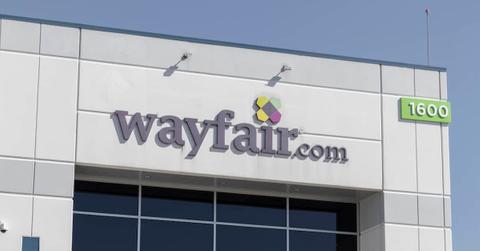Unpacking the Appeal and Concerns: The Truth Behind Wayfair's Low Prices
Published Dec. 18 2023, 4:29 p.m. ET

The Gist:
Wayfair's affordability stems from a variety of seemingly above-board reasons.
Ethical concerns around the brand’s business model have put them in the spotlight.
Making informed decisions to minimize the negative effects of our choices is more important than ever.
Wayfair, the online behemoth for home goods, has become synonymous with affordable furniture and décor. But how does it manage to offer such low prices? Is there a catch, or is it simply a dream come true for budget-conscious homemakers?
Let's unpack the reasons behind Wayfair's affordable price model. While we're at it, let's also dig into some ethical concerns surrounding the brand. Is it legit, or is it just another fast furniture outlet?

Why is Wayfair so cheap?
Wayfair wasn't always the home design giant you know today. In 2002, it was a humble two-person operation run by college buddies Niraj Shah and Steve Conine out of Steve's spare bedroom.
By 2011, Wayfair had become a one-stop e-commerce destination offering millions of home products. So, why is Wayfair so cheap? Here are a few possible reasons:
Marketplace model: Unlike traditional furniture stores, Wayfair acts as a marketplace, connecting customers with a vast network of independent sellers. This cuts out the middleman, allowing for lower prices.
Bulk buying power: Wayfair negotiates massive discounts with manufacturers by purchasing furniture in bulk. These savings are then passed on to the consumer.
Minimal overhead: By operating primarily online, Wayfair avoids the hefty costs associated with physical stores, such as rent and staffing. This translates to lower prices for customers.
Private label brands: Wayfair produces its own line of furniture, often manufactured at lower costs overseas. These private-label items offer attractive price points while capturing a larger share of the profit.
Data-driven pricing: Wayfair utilizes sophisticated algorithms to dynamically adjust prices based on factors like customer demand, inventory levels, and competitor pricing. This ensures they remain competitive and offer the lowest prices possible.

Is Wayfair an ethical company?
While Wayfair's affordability is undeniable, some ethical questions have emerged, spotlighting the brand's business practices.
A class action lawsuit filed by former employees in July 2023 alleged that the company failed to pay customer service representatives for the time required to log in before their shift start time.
In 2019, employee protests erupted, and a walkout ensued over reports of Wayfair products being used by the government in border detention camps for migrant children.
And that’s not all. In November 2022, the company got embroiled in a legal skirmish with long-standing supplier Mulhouse Furniture Corporation after filing a federal lawsuit accusing Mullhouse of shipping empty boxes to customers.
Mulhouse denied the allegations, saying that Wayfair was trying to put them out of business to get hold of their stock at discounted prices. The company also claimed Wayfair was trying to cut costs by replacing U.S.-based suppliers with cheaper Chinese suppliers.
To add to their woes, Wayfair also faced controversy in 2020 when it became the target of a baseless QAnon child trafficking conspiracy theory.
So, is Wayfair legit?
It's difficult to say definitively whether Wayfair is legit. Their savvy business model enables them to offer low prices. However, it's important to recognize that cheap comes at a cost, and it's usually not the merchandiser who bears the burden.
In many ways, Wayfair resembles fast fashion brands like Shein, Zara, or Temu, where low prices are achieved through questionable practices, such as pressuring suppliers to lower prices, which can ultimately lead to exploitative labor conditions.
But at the end of the day, it's up to the consumer to decide whether the low prices outweigh the ethical concerns. As with any purchase, it's important to research, read reviews, and make an informed decision.
And remember, affordability doesn't always mean quality. So, while Wayfair may offer budget-friendly options, it's essential to consider the environmental impact of our choices. Where will your unwanted items end up when you discard them?